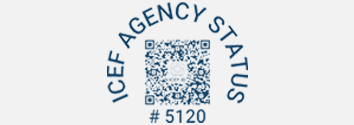
Why should I study abroad?
Internationally-ranked institutions offer world-class education and unique professional training programs to launch your career.
For more information on why you should study abroad, check out our resources, or schedule an appointment with one of our international education specialists.
How can Edceum help me?
Our team has the right experience and resources to help you find the best global school and program that matches your profile, interests, and career goals. We also help you easily complete the application process; secure a visa and a safe place to live; and be confident that you can work and live in the country of your choice after you complete your studies.
Choosing to study at an international school is a big decision – and we help you and your family feel confident and secure every step of the way.
What are “designated learning institutions”?
Designated learning institutions are universities and colleges that can host international students. To get a study permit, you’ll need to be accepted to one of these schools. We connect all our applicants with designated learning institutions that fit their profile.
If you wish to stay and work there after graduation, we can also help ensure your program qualifies for the country’s Post-Graduation Work Permit Program.
Do I need a visa to study abroad?
If you wish to visit or study abroad for 6 months or less, then you do not need a study permit; all you need is a visitor visa.
However, if you plan to study for longer than 6 months, you must apply for and receive a study permit and visitor visa or Electronic Travel Authorization (eTA). Our expert team can help you easily navigate this process
What are application fees?
Globally, educational institutions charge a fee to process applications to their programs. This fee covers the cost of the school processing your application and sending out an acceptance letter if you are admitted.
Fees range from $50 to $300 for each program application. The application fee for each program is clearly listed on the university’s official website.
Note: Edceum does not charge additional fees for applications.
What is an acceptance letter?
Often referred to as an LOA, a Letter of Acceptance is issued by a university or college when it has reviewed your application and admitted you to study at the school. This admission letter must be presented as part of your study permit application.
Can I defer an acceptance letter?
International universities and colleges usually allow applicants to defer their acceptance by a semester or a year, so that they can begin studying later. However, schools may charge a fee to defer your start date in the program.
When are fees and tuition payments due?
Application fees to international universities and colleges must be paid at the time you apply.
Tuition fees must be paid directly to the school based on the institution’s requirements. Many schools require students to pay a deposit to secure their enrollment spot once they are admitted. This fee is part of the tuition and will be refunded to you if you do not get your study permit.
The remainder of your tuition is usually due at the beginning of each semester.
How do I apply to a post-graduate program?
Students who have completed an undergraduate degree can apply to a post-graduate (master’s) degree program or a post-graduate certificate. If you are still finishing your undergraduate degree, you’ll need to provide a transcript of all the grades you’ve earned in your degree so far.
If you’ve already completed your undergraduate degree before applying, schools ask you to include your full university transcript and your diploma or graduation certificate with your application. Most schools also request that you provide your passport or other identifying documentation to support your identity.
Post-graduate programs often ask for recommendation letters from professors, an entrance essay (sometimes called a statement of purpose or statement of intent), and a resume with your application. International students are also usually asked to provide proof of English proficiency with IELTS or TOEFL scores.
For more information on how to apply to programs abroad, schedule an appointment with one of our international education specialists.





